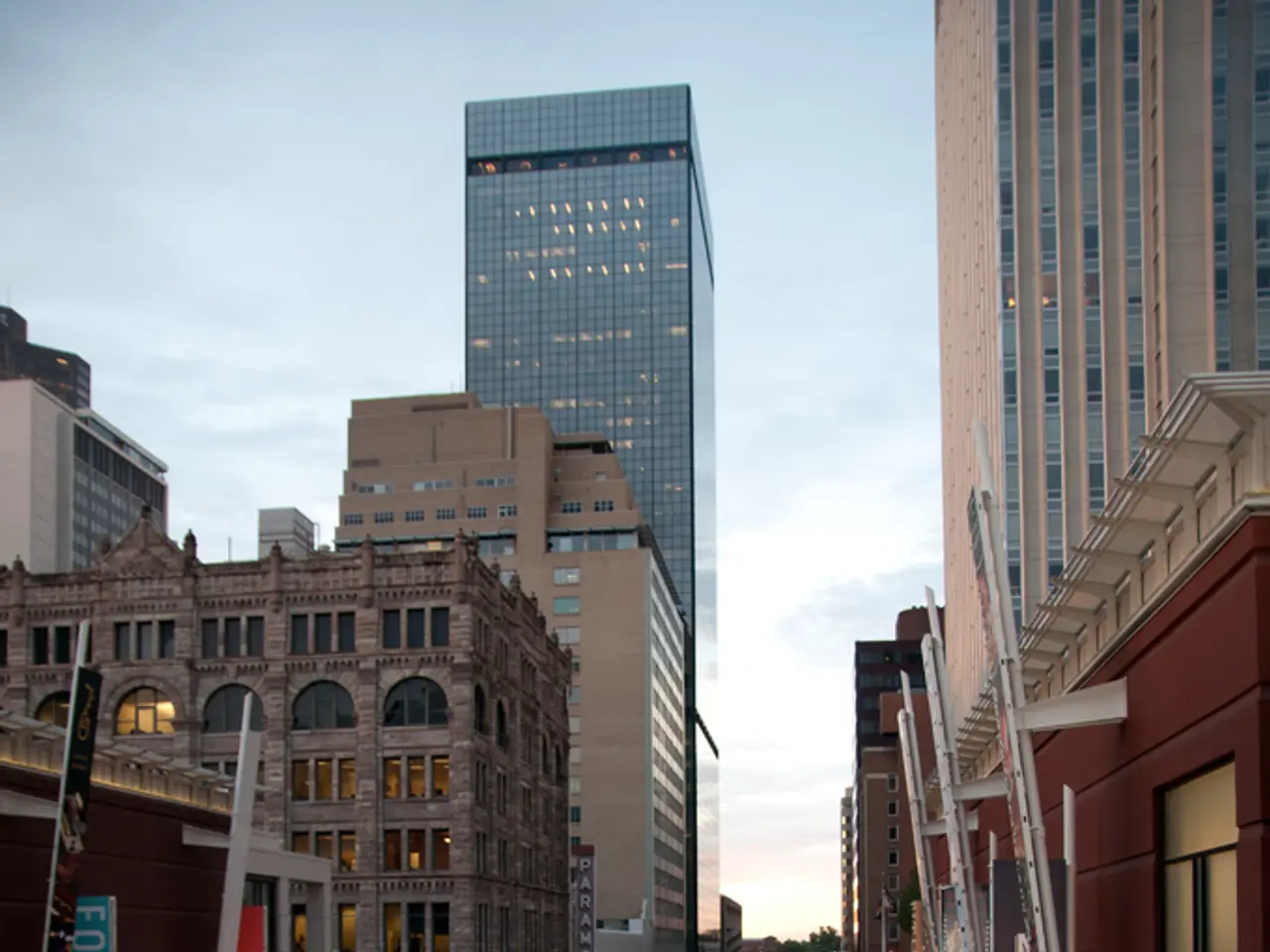Strategies for Streamlining Last Mile Delivery - Insights from a Small Dutch Municipality
In the heart of the Dutch city of Nijmegen, Binnenstadservice (BSS) has been operating for almost 13 years, revolutionising the way goods are delivered in the city centre. Founded by Birgit Hendriks, the former Inner-City Manager of Nijmegen, in April 2008, BSS has become a beacon of efficient and environmentally friendly logistics.
Despite the widespread acknowledgement of BSS's success, Birgit admits that the impact it has today is still too small. She believes that more contracts are needed to accelerate the transition towards more sustainable and efficient logistics.
BSS initially focused on small and independent retailers as clients, rather than carriers. This approach allowed the consolidation centre to establish a clientele and sign contracts with retail stores and carriers. The centre received an initial subsidy for the first year of operation, which was crucial in helping it to establish a foothold in the market.
The success of BSS can be attributed to a centralised logistics approach, collaboration among stakeholders, a focus on sustainability and efficient urban mobility, support from local policies and regulations, and a commitment to customer service and reliability.
As a hub, BSS consolidated deliveries from multiple suppliers into one efficient distribution system, reducing the number of individual delivery vehicles driving into the city centre. This not only alleviated congestion and pollution but also contributed to a smoother flow of goods.
The cooperation between the city authorities, logistics companies, local retailers, and other partners was instrumental in the UCC's success. This coordination enabled smooth operations and acceptance among businesses benefiting from the service.
BSS prioritised environmentally friendly last-mile deliveries, often using smaller, cleaner vehicles or cargo bikes to navigate the narrow streets in Nijmegen’s inner city. This commitment to sustainability resonated with local businesses and helped to establish trust.
The city facilitated the UCC's implementation by integrating it into broader urban planning objectives concerning traffic reduction, air quality improvement, and sustainable urban development. This support from local policies and regulations provided a solid foundation for the UCC's growth.
After the subsidy ended, Birgit and her team introduced additional services, such as handling return deliveries and residues, as well as the provision of storage space, that customers were willing to pay for. This diversification of services helped to sustain the business and increase the volume of goods.
In 2019, the national network of urban consolidation centres in the Netherlands was rebranded as Goederenhubs Nederland, a privately owned company run by Birgit, Max, and Theo Arntz. Goederenhubs imposes a number of conditions that its partner companies must meet, including core opening hours, a minimum number of cross-dock doors, a general commitment to deliver goods in the most sustainable and bundled way possible, and the use of the Goederenhubs IT platform.
Other cities across the Netherlands have approached Birgit to start a BSS-franchise, with the aim of collaborating with other local hubs to strengthen their position. The success of BSS in Nijmegen serves as a model for other cities looking to implement sustainable urban logistics solutions.
Birgit believes that a combination of ambition, real action, and people like herself and Max who don't shy away from a challenge is necessary for change towards more efficient and greener logistics. She advocates for stricter governmental regulations, such as measures that stop (half-empty) trucks from entering city centres, as the best driver for more customers. According to Birgit, change requires both a carrot and a stick - ambition, real action, and stricter governmental regulations.
In conclusion, the success of BSS in Nijmegen can be attributed to a centralised logistics approach, collaboration among stakeholders, a focus on sustainability and efficient urban mobility, support from local policies and regulations, and a commitment to customer service and reliability. These factors have made BSS an effective model for sustainable urban freight logistics, contributing to reducing traffic and emissions in Nijmegen’s historic city centre, while maintaining efficient goods distribution.
Science plays a crucial role in the development of environmental-science, shaping the strategies used by BSS in their quest for sustainable living and efficient urban mobility. In the realm of home-and-garden, the approach adopted by BSS, with its focus on reducing congestion and pollution, aligns with the principles of sustainable living, fostering a healthier and more eco-friendly lifestyle for all city inhabitants.




